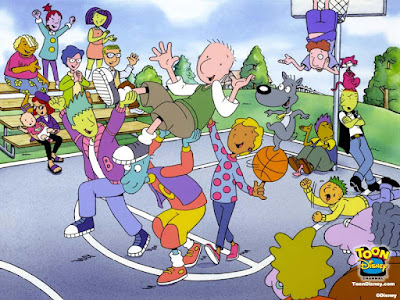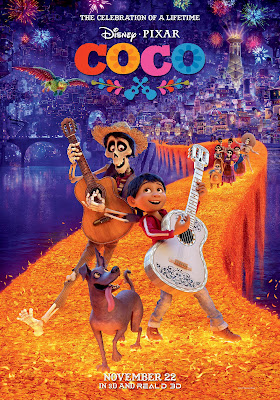WRITER'S NOTE: The following reviews were originally written and posted on my Instagram page @be.kerian in June of 2023. (The Dark Knight trilogy is not included, as that's in a category of its own. You can read more about that series here.)
 |
| Momentum Pictures |
Christopher Nolan is one of the most influential and dynamic filmmakers of the 21st Century. But many don't know that his feature film debut came right before the turn of the century. In 1998, he laid the groundwork for his trademark cerebral, nonlinear style, with this engrossing thriller.
The detailed neo-noir Following centers on an English writer (played by Jeremy Theobald) who becomes obsessed with voyeurism, with his latest subject being an expert thief. With a haunting score, Hitchcock vibes, and a subversive twist from the get-go, Nolan's film (which he photographed on 16mm black-and-white film stock, as well as co-edited and co-produced) also deals with themes of materialism and the invasion of peoples' privacy, whether visually represented in a sea of faces in the street or in a small jewelry box. More importantly, the filmmaker's recurring theme of time here blurs the line between past and present--and the challenging question of who was really following who.
TRIVIAL FACT #1: The Batman logo makes an appearance in one scene. (Seven years later, Nolan would revive that franchise with Batman Begins.)
TRIVIAL FACT #2: One year prior to the release of "Following," Nolan made a 3-minute short film called Doodlebug.
 |
| Newmarket Films |
There are few films that have had as profound of an effect on postmodern cinema as Nolan's sophomore feature. Essentially a noir-thriller in reverse, Memento (based on a short story written by Nolan's brother, Jonathan) follows a man with short term memory on a quest to find his wife's killer. Much like Quentin Tarantino did with Pulp Fiction, Nolan uses a non-linear structure to illustrate main protagonist Leonard Shelby (played superbly by Guy Pearce)'s fading memory and trust issues.
The details in this film are key, from the numerous tattoos on Leonard's body to the Polaroid snapshots he takes of certain people and places, and the black-and-white segments intercut throughout (a subplot that, ironically, moves forward instead of back). Guided by Pearce's engrossing voice over narration, Memento exceeds being just a mere whodunit murder mystery, and more of a nail-biting and tragic character study. That goes just as well for the thought-provoking question of what's more reliable: notes, facts, or memories? As Leonard contemplates, "I have to believe in a world outside my own mind. That my actions mean something."
The film is ultimately a morality tale of one man struggling with his own identity (and possibly self-deception?) and believing what he wants to believe, regardless of the facts. As one character tells the bleach-blonde Leonard, "Maybe you should start investigating yourself."
 |
| Warner Bros. Pictures |
For his first major studio film, Nolan helmed this gripping slow-burn of a thriller. Insomnia is about a seasoned homicide detective (Al Pacino) who is assigned to a murder case in a sleepy Alaskan town where it's always daylight. Following an unexpected incident that haunts him for the rest of the film, the sleep-deprived Will Dormer soon gets caught in a twisted game of cat-and-mouse with a murder suspect (Robin Williams), while his fellow officer (Hilary Swank) questions Dormer's possible hidden agendas.
All three actors are in top form, particularly Pacino's multilayered and guilt-stricken detective, and Williams in one of his darker roles (although, his character in that year's One Hour Photo was a lot creepier). This also marks the only time that Nolan directed a film where he wasn't credited as a writer (that goes to Hillary Seitz, who adapted the 1998 Swedish film of the same name). Nolan's trademark editing style (reportedly influenced by Terrence Malick) was arguably first seen here, while Wally Pfister's haunting and misty cinematography adds to the film's challenging attention-to-detail clues (or misdirections) involving "wild cards" and choices that characters grapple with. This is a complex, disturbing, and engrossing thriller about moral ambiguity and personal demons.
 |
| Buena Vista Pictures Distribution |
"Are you watching closely?" Perhaps no line best sums up the filmography of Christopher Nolan than from his 2006 mystery-thriller about two magicians whose friendship turns to rivalry. Hugh Jackman and Christian Bale headline an impeccable cast (including Michael Caine, Scarlett Johansson, and musician David Bowie) as the eponymous stage performers who spend years trying to unravel and outdo each other's secrets. To reveal anymore plot details would be to ruin the illusion.
Penned by Nolan and his brother Jonathan, this subversive and engrossing story of betrayal, deception, envy, and tragedy has brilliant period production design, while its narrative is filled with various misdirections and slights of hand, often blurring the lines between what is an illusion and what is (shockingly) real.


































